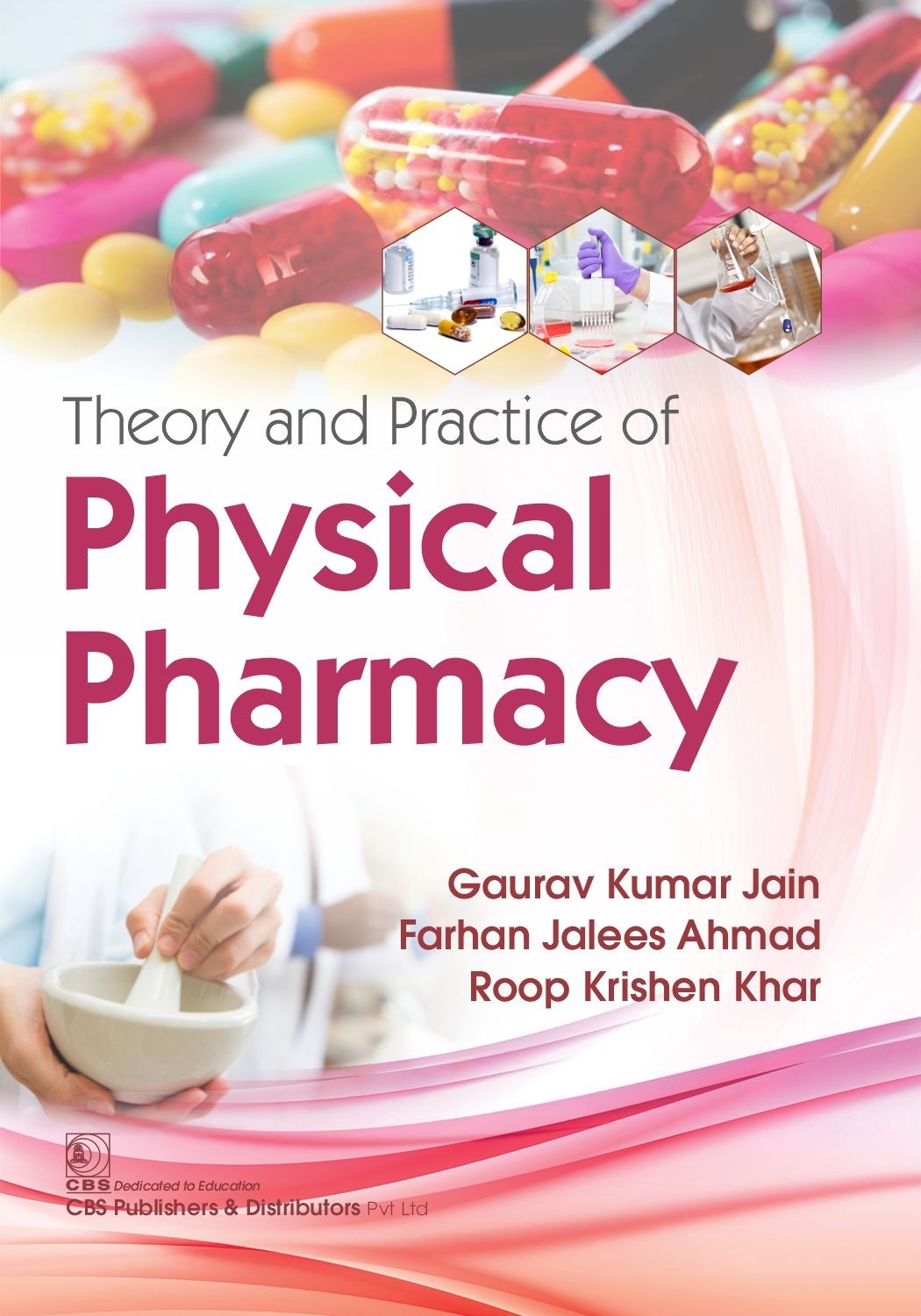
A core subject in pharmaceutics, physical pharmacy is taught in the initial semesters of B. Pharma. The methodical knowledge of the subject is required, and is essential, to understand the principles pertaining to design and development of drug and drug products. Theory and Practice of Physical Pharmacy is unique as it fulfils the twin requirements of physical pharmacy students
A core subject in pharmaceutics, physical pharmacy is taught in the initial semesters of B. Pharma. The methodical knowledge of the subject is required, and is essential, to understand the principles pertaining to design and development of drug and drug products. Theory and Practice of Physical Pharmacy is unique as it fulfils the twin requirements of physical pharmacy students: the authentic text on theoretical concepts and its application including illustrative exercises in the form of practical s. Key Features Covers all the topics included in various existing syllabi of physical pharmacy Provides an integrated understanding of theory and practical applications associated with physicochemical concepts Explore the latest developments in the field of pharmaceutics Reviews the relevance of physicochemical principles in the design of dosage form Ensures proper recapitulation through sufficient end-of-chapter questions Provides valuable learning tool in the form of multiple choice questions Multiple choice questions section especially useful for GPAT aspirants Table of Contents PART A: THEORY Chapter 1. States of Matter Chapter 2. Micromeritics Chapter 3. Pharmaceutical Rheology Chapter 4. Surface and Interfacial Phenomena Chapter 5. Bu?ers and Isotonic Solutions Chapter 6. Complexation and Protein Binding Chapter 7. Colloidal Dispersions Chapter 8. Pharmaceutical Suspensions Chapter 9. Pharmaceutical Emulsions Chapter 10. Di?usion and Drug Release Chapter 11. Drug Dissolution Chapter 12. Kinetics, Degradation and Stability PART B: PRACTICALS Experiment 1 Ternary Phase Diagram Experiment 2 Particle Size by Optical Microscopy Experiment 3 Particle Size by Sieving Experiment 4 Flow Property of Powder Experiment 5 Angle of Repose Experiment 6 density determination Experiment 7 Ostwald Viscometer Experiment 8 Falling Sphere Viscometer Experiment 9 Spreading Coe?cient Experiment 10 Critical Micelle Concentration Experiment 11 Bu?er Preparation Experiment 12 Colloidal Solution Experiment 13 Physical Stability of Suspension Experiment 14 Dissolution Pro?le of Tablet Experiment 15 Kinetics I Experiment 16 Kinetics II PART C MULTIPLE CHOICE QUESTIONS Multiple Choice Questions (Useful for gpataspirants) MCQ Answer Key Index
Gaurav K. Jain is Assistant Professor at Hamdard University, New Delhi. Having received the gold medal for first position in postgraduation, he did his PhD at the Hamdard University. His research interests include physical and pharmacokinetic aspects of nanotechnology-based pharmaceuticals. He has been a member of organizing committees of several national and international conferences and has over 30 publications in referred journals and other edited collections. Farhan J. Ahmad is Associate Professor at Hamdard University, New Delhi. He did his post- graduation and PhD in pharmaceutical sciences from Hamdard University. He has rich industrial experience of product development. His research interests include controlled release and targeted drug delivery technologies and nanotechnology-based herbal products. He has published more than 200 research and review papers and attended many national and international conferences. Roop K. Khar is Professor of Pharmaceutics at Hamdard University, New Delhi. He has extensive experience of leading research projects and has supervised several M. Pharm and PhD theses. He has over 250 publications and several Indian and US Patents, besides 10 text and reference books, to his credit. He has convened several international conferences and is the member of editorial boards of various international and national journals.
Lorem Ipsum is simply dummy text of the printing and typesetting industry. Lorem Ipsum has been the industry's standard dummy text ever since the 1500s, when an unknown printer took a galley of type and scrambled it to make a type specimen book. It has survived not only five centuries, but also the leap into electronic typesetting, remaining essentially unchanged. It was popularised in the 1960s with the release of Letraset sheets containing Lorem Ipsum passages, and more recently with desktop publishing software like Aldus PageMaker including versions of Lorem Ipsum.